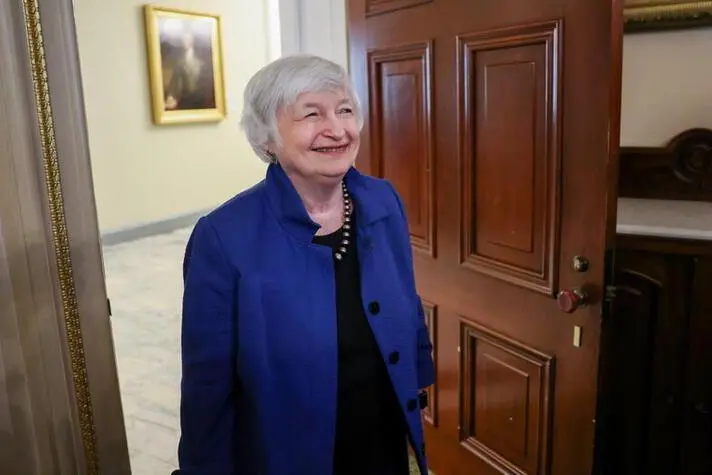PHOTO
(The author is a Reuters Breakingviews columnist. The opinions expressed are her own.)
WASHINGTON - Janet Yellen’s dealmaking days are just beginning. The U.S. Treasury chief was renowned as an economics wonk rather than a negotiator. Yet it was the former Federal Reserve boss who convinced 130 countries to back a minimum corporate levy earlier this month. Persuading Congress to do the same while preserving the global coalition will be an even trickier challenge.
Yellen used a combination of carrots and sticks to coax other nations to get on board. With her European counterparts, she stressed that U.S. politicians of all stripes were united against the region’s digital services taxes and that a trade war could be triggered if a compromise wasn’t found. To secure the backing of India and China, she emphasized that the deal would reduce incentives for their homegrown global companies to go hunting for lower-tax locations abroad. But she has yet to win over skeptics at home.
The Republican leaders of the finance committees in both chambers of Congress wrote to Yellen on Thursday to express concern that the global tax deal favored other countries at the expense of American interests. They are particularly worried about allocating some taxing rights over multinationals to countries where goods and services are consumed rather than where the companies are based. Treasury officials have emphasized that the United States would not lose any revenue, but some Republicans argue that the formula would allocate up to 30% of global profits to other countries.
Another problem is carveouts. For example, the United Kingdom lobbied for financial services to be exempt from the deal, and the mining sector is also expected to be excluded. Meanwhile, China wants to keep special economic zones, while Switzerland wants to maintain certain subsidies. Some U.S. lawmakers don’t like that kind of special treatment. The exemption for banks could upset critics of Wall Street like Senator Elizabeth Warren. The mining clause is seen as favoring non-American companies, including ones in China.
The Group of 20 major developed and emerging countries, whose finance officials begin a two-day meeting on Friday, are keenly aware of the pushback that Yellen is getting at home and want to know how she will win the support of Congress, which, like other national lawmaking bodies, must approve the deal. One way to do this would be to set the global minimum corporate tax rate above 15% since President Joe Biden wants to raise the minimum tax that U.S. companies pay on income earned outside the United States to 21% from 10.5%. But that’s too high for some countries, who might then withdraw their support for the global deal. Trying to persuade different parties with competing interests that a tax deal is a win-win may be more than even Yellen can manage.
CONTEXT NEWS
- Finance and central bank chiefs from the Group of 20 major developed and emerging economies began a two-day meeting on July 9.
- The agenda of the G20 meeting included discussions on the global minimum corporate tax of at least 15% that was backed by 130 countries on July 1.
- G20 finance ministers will push for unresolved issues in a proposed global corporate tax overhaul to be ironed out by October, and are urging holdouts to join the deal, Reuters reported on July 9, citing the latest version of a draft statement.
(The author is a Reuters Breakingviews columnist. The opinions expressed are her own.)
(Editing by Swaha Pattanaik and Marjorie Backman) ((SIGN UP FOR BREAKINGVIEWS EMAIL ALERTS http://bit.ly/BVsubscribe | gina.chon@thomsonreuters.com; Reuters Messaging: gina.chon.thomsonreuters.com@reuters.net))





















